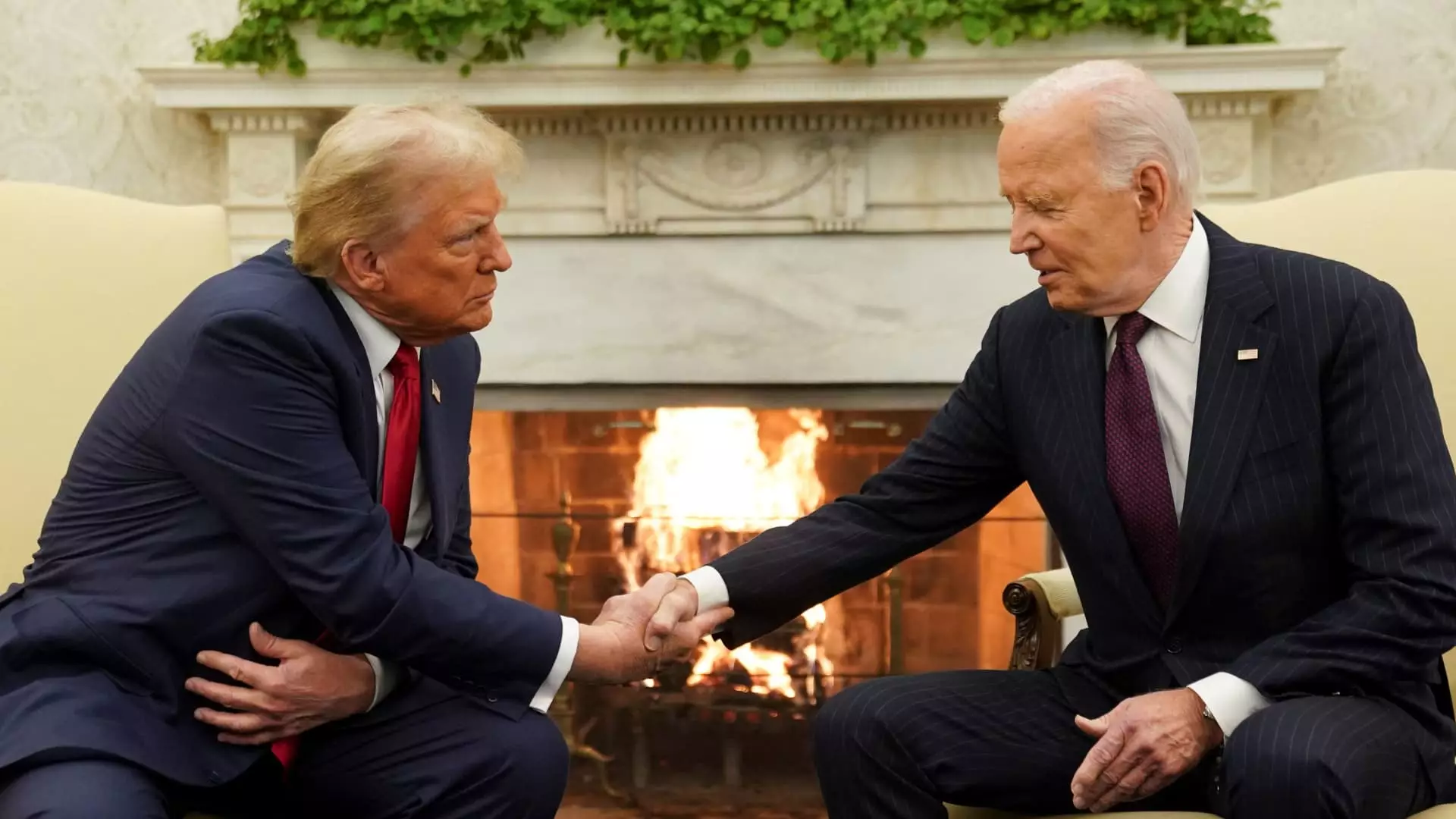When assessing the influence of presidential elections on stock market dynamics, investors often grapple with uncertainty and seek clarity from historical data. However, the relationship between electoral outcomes and market performance is hardly straightforward. Analysis indicates that the stock market’s reaction in the aftermath of presidential elections varies considerably, with no clear patterns emerging. For instance, upon President Joe Biden’s election in 2020, the S&P 500 surged over 42% in the following year. This stark contrast leaves investors pondering whether elections are a boon or bane for the stock market.
Diving deeper into historical trends reveals a mosaic of outcomes following presidential elections. For example, the S&P 500 experienced a notable decline in the year subsequent to Jimmy Carter’s victory over Gerald Ford, losing approximately 6%. Comparatively, Dwight Eisenhower’s re-election similarly led to a lukewarm market, also witnessing a drop of about 6%. In contrast, the aftermath of Ronald Reagan’s elections presented a more optimistic outlook; the S&P 500 only edged up by 0.6% after his first win but soared roughly 19% after his re-election.
This inconsistency prompts a critical analysis of the underlying factors that may contribute to market performance during and after election cycles. Various elements, including economic conditions, geopolitical contexts, and changes in governmental policy, heavily influence market fluctuations, often overshadowing the mere act of voting.
The prevailing sentiment among financial experts is one of caution when attempting to correlate electoral outcomes with market performance. Jude Boudreaux, a certified financial planner and partner with The Planning Center, emphasizes that “there’s no obvious and discernible pattern.” He likens election years to typical years in the stock market, indicating that broader economic principles predominantly dictate market behavior rather than changes in political leadership alone. As a result, Boudreaux advises against making sweeping changes to investment strategies solely based on election results.
Additionally, Dan Kemp, global chief investment officer for Morningstar Investment Management, underscores the psychological aspect of investing during election periods. He notes that uncertainty often prompts investors to chase narratives that promise to predict future trends, thereby leading them to modify their portfolios disproportionately. This illustrates a critical psychological bias where investors react emotionally, rather than strategically, to electoral outcomes.
While investors are naturally inclined to seek patterns in historical performance post-election, the evidence suggests that such endeavors may often lead to misguided strategies. The unpredictable nature of market movements necessitates a balanced approach that considers a spectrum of factors beyond mere political changes. As we navigate the complexities of investing, it is essential to remain grounded in sound financial principles instead of succumbing to the turbulent emotional waves that accompany electoral seasons.

